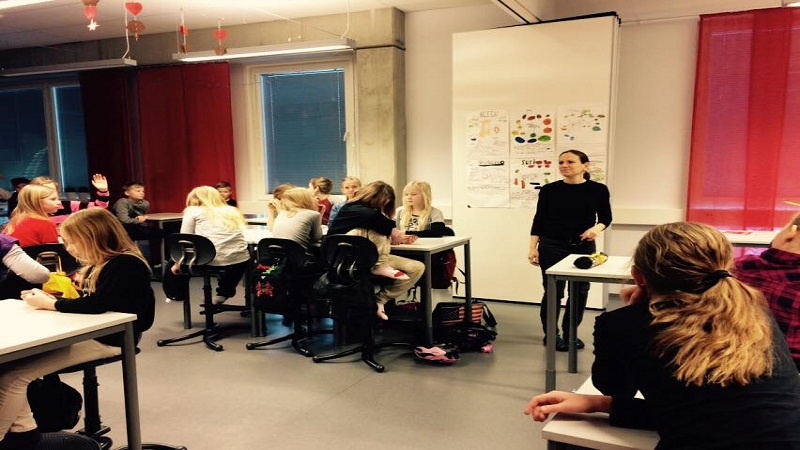The preparation of exam begins at the beginning of the course. Have the program of the subject, know, metalize the program and its agenda throughout the year, attend classes, books, support materials … Think that the longer the time spent in that subject, the more likely there is that you overcome it satisfactorily. The exam is only the goal of a long career.
We will give you some tips for the preparation of exams, some of which we have already collected in other sections; the link will appear so you can take a look at them. If you follow these tips, we guarantee that your chances of passing will be multiplied by a thousand:
Preparation of exam

- In the first place, it is very important to keep motivation high.
- Have a good learning strategy for each subject. The study method explore, ask, read, recite and review ( SQ3R ) provides us with a good strategy to settle gradually and gradually knowledge and understanding for an examination.
- Take good notes in each class.
- Plan the study.
- Use tricks to memorize those fundamental contents.
- Do not forget to review constantly.
- The day of the exam, control your nerves.
- Eliminate negative thoughts such as “I’m sure I’m suspended” or “I’m not capable”. They are only a burden that limit you and prevent you from surrendering to the level of which you are capable.
- Read the exam questions well.
If we have taken care of other aspects. We have laid the foundations to conveniently plan the realization of an exam without leaving everything for the last minute.
Self-motivation in the study
Nobody better than you know what motivates you, what induces you to the effort? It is convenient that you find very convincing and important reasons that automotive and do not leave the slightest doubt that the effort you are going to make is worth it.
How to start self-motivation
Advantages of studying and getting good grades. Write on a paper all the advantages that being a good student will bring you (family advantages, awards, better future, and consideration of teachers …). Do not leave anything in the inkwell. From accessing the girl in the class you like the most to buying a motorcycle, going through a piercing, or going to the United States. Negotiate your prizes according to what your parents can give you.
Convince yourself totally that you can study successfully and get good grades.
In this regard, you knew that:
Many geniuses and personalities who have triumphed in their lives were young bad students, until one day they knew how to react. Lee Do not gives up.
You only use a small percentage of your intellectual capacity; well trained you can overcome many colleagues that you think are unattainable.
Applying study techniques some students can improve their performance in very high percentages, which allows them to overcome with relative ease the best in their class.
If you learn to control and reeducate your habits you will have learned something very important to adapt to difficult situations that life can bring you.
The power of self-motivation
It is very important to find reasons that motivate you. In the posts that follow we will talk about many things that may help your self-motivation. For example:
- The foolish thing of wasting time,
- Take advantage of the experience of one’s own failures
- The advantages of taking advantage of the classes,
- The fun classes, etc. etc.
- The power of self-motivation will help you move mountains. If you find your reasons to be a good student, that is the most important thing. Everything else will come often.
TOP KEYS TO RENDER A GOOD CONTEST OR EXAM
Everyone wants to get a good result, and for this it is important to know that when studying the steps that should be followed are almost always the same, what varies is the choice of technique in each of these steps, and that depends on each person. The ultimate goal will be for the student to know how to self-regulate and be autonomous in their learning,” he says. The more you know yourself the student and know the different study techniques available to you, the easier it will be to select the most appropriate to each situation to create your own learning strategies, which can consider one or several techniques of study.
What study techniques are there?
Establishing a suitable place and time to study is very important, as this will generate the attention and concentration needed to start the study. Then, when it is already defined, we can resort to one or more of these techniques:
- Activation of previous knowledge (titles and subtitles, questions and answers).
- Strategies for collecting and selecting information (underlining concepts, keywords).
- Synthesis and comprehension strategies (schemes, conceptual maps, comparative tables).
- Memory (repetition, association of concepts and acrostics)
- Review and memory of the contents and transfer of knowledge (summary).
- As we said, the choice of one or several techniques will depend on each person.
The knowledge acquired is important when performing an evaluation, however, the result obtained depends on many factors that must be learned. We will understand that these factors are the keys for an optimal result.
What are these keys?
Follow an active and programmed learning process, also adjusted to the type of exam-test, written, oral, and practical. Devote time to review, reinforce and strengthen.
Self appraisal
Design, search and perform exercises and exams very similar to the one to be done, adjusting times, reviewing the answers and learning from mistakes.
Conviction
Believe in our own capacity; value our knowledge and adequate preparation; Trust our competence to perform the test properly.
Nerves
Arrive rested to the evaluation, with sufficient time and the necessary material; Before starting you have to try not to review or talk about the exam and avoid nervous partners.
Weather
Know, distribute and control the time available to perform the entire test, and to answer each question. Read, plan, write, review.
Self-control
Focus on positive thoughts; if we stay blank, tranquility will help us remember; We can move on to the next question and resume it later.
Accuracy
Follow the instructions, read carefully the statements and the information they provide. Know the value of each question and the scoring system.
Answers
Adjust to what they ask. Summarize, define, outline, compare and develop. If it is possible not to leave blank questions, answer at least with some idea or a scheme.
Presentation
Take care of the content, structure, rigor, form, calligraphy, spelling and grammar.
Revision
Reread, review and review all the content before submitting it. Confirm that it has been answered correctly. If possible, go to the subsequent review of the exam to learn. Finally, we must bear in mind that evaluations are a challenge and a learning opportunity; an occasion to demonstrate that a series of knowledge has been acquired, assimilated and internalized.
The Director of the Learning Center of Santo Tomas Los Angeles states that “whatever the result of an exam, it is worth remembering that the note is not a measure of personal worth, but the fruit of performance at a specific moment, a product not only of knowledge and skills, but also the effort and level of preparation, the degree of self-control and the way in which that specific test has been effectively carried out.
In order to provide guidance and academic support to students, Santo Tomas Los Angeles has the Learning Center. This is a specialized academic instance, where students attend tutorials in which they can reinforce content seen in classes and / or improve their skills so that they are successful in their studies. “Our ultimate goal is to contribute to the improvement of teaching-learning processes through direct support to our students explains the Director.








